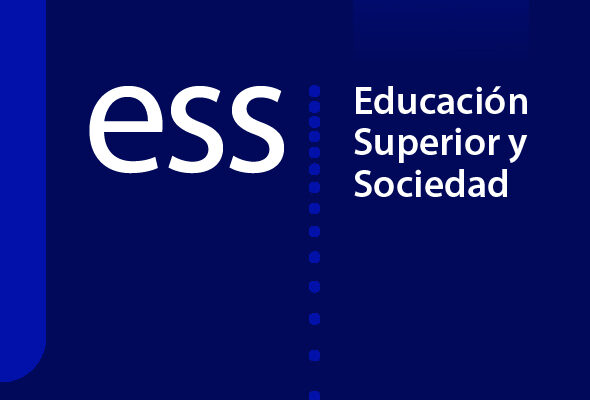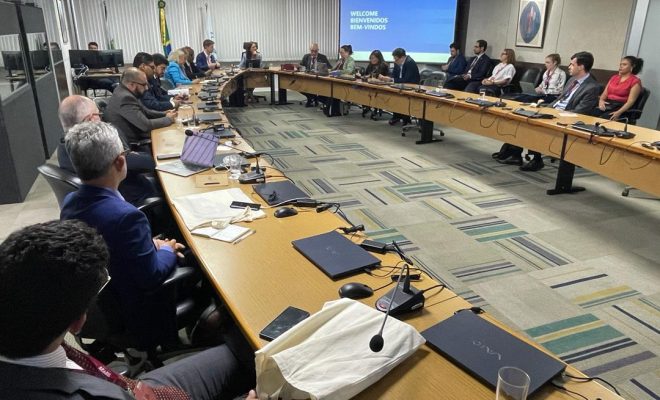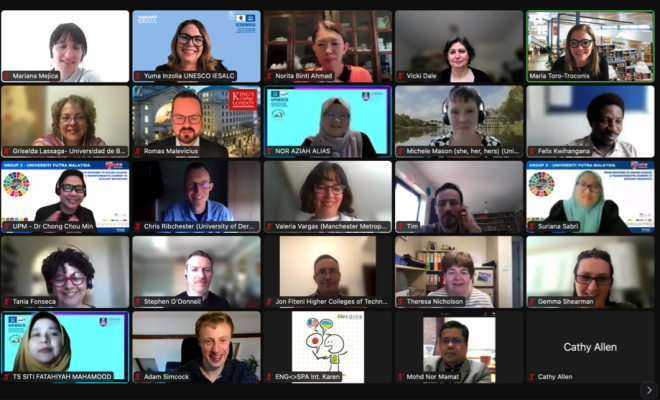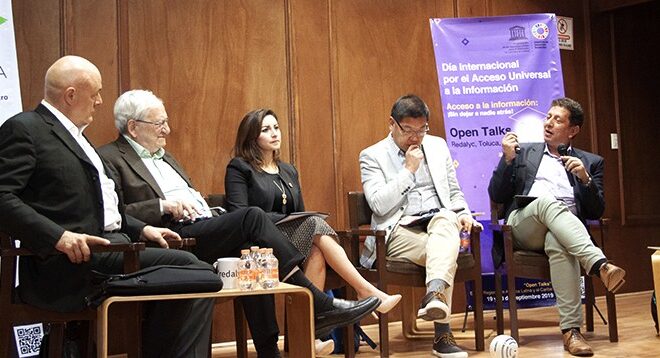Lab Quality that unites us Itinerary
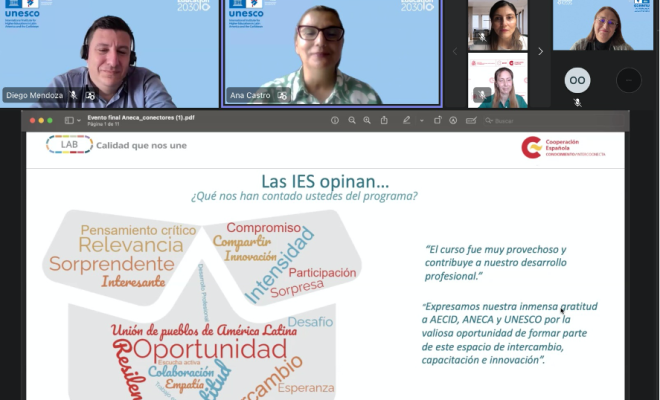
The programme LAB Training Itinerary Quality that unites us has been carried out within the framework of the Interconecta Plan (Plan de Transferencia, Intercambio y Gestión de Conocimiento para el Desarrollo de la Cooperación Española en América Latina y el Caribe) of the AECID in collaboration with the ANECA (Agencia Nacional de Evaluación de la Calidad y la Acreditación de España).
The closing event was attended by the directors of the three institutions Laura Oroz Ulibarri, AECID’s Director of Cooperation with Latin America and the Caribbean, Pilar Paneque, Director of ANECA and Francesc Pedro, Director of UNESCO IESALC.
The three directors highlighted the great value of the programme for the construction of the higher knowledge space in the region and for the strengthening of mutual trust between Higher Education Institutions (HEIs). The aim is to promote the mobility of students, teachers and researchers and to strengthen higher education in the region.
In the words of Laura Oroz Ulibarri, she thanked all the participating institutions for their work and remarked that for AECID the programme has been of great value for all participants.
…the LAB Quality that unites us itinerary has been an introspective reflection that contributes to improving the internal quality of HE as generators of public value and as providers of quality education, uniting a realistic, collaborative regional view focused on finding channels, criteria and common bases to continue building an Ibero-American space of knowledge.
For her part, Pilar Paneque highlighted the achievements of the programme and emphasised that:
The project is initiated with the aim of facilitating a meeting point conducive to learning and joint construction of key elements in improving the quality of higher education fully committed to an idea of responsible quality sensitive to the SDGs….
Lab Calidad que nos une is a training itinerary aimed at the quality areas of Latin American and Caribbean universities, in which 53 higher education institutions and 4 Latin American and Caribbean education accreditation and evaluation agencies have participated as observers. In total, entities from 16 countries in the region were involved in the programme.
Throughout 9 months, from February to September 2023, the 53 HEIs have developed the activities, workshops and co-creation sessions that made up the itinerary, together with 11 representatives of the accreditation agencies and ministerial entities of the region that participated as observers. During this time, 27 experts from 7 countries have led training, analysis and co-creation sessions and have led to the development of 5 portfolios resulting from these collaborative work sessions.
The 280 hours of the training itinerary were divided into 7 activities, 5 of which were training activities, covering topics such as: academic integrity from an institutional perspective, the transformative role of evaluation agencies, the design of internal quality assurance systems and the design of teaching quality assurance systems, R+D+i evaluation and doctoral schools. The topics of sustainable development and institutional improvement, innovation, diversity and inclusion were also discussed. Finally, the prospects for institutional accreditation in the region were analysed, all of which are highly relevant and topical issues.
The training was completed with the elaboration by each of the teams of an end-of-programme project, in which, based on the SWOT analysis of their own institutions in the light of the contents set out in the training, they proposed an improvement plan through which the institution itself could improve in some of the aspects identified. To carry out these activities, they have had the personalised support of 8 UNESCO IESALC connectors.
The evaluation of the activities of the different universities was carried out by an evaluation committee made up of 15 quality experts from the region who, by consensus, provided detailed feedback to each of the HEIs for their improvement. 49 HEIs completed diagnostic reports and improvement plans and thus completed their PFP and successfully passed the demanding Lab quality pathway, which represents 90% of the institutions that started.
One of the main objectives of the Intercoonecta Action Plan is the formation of regional development networks and this project has sought to form a quality network to strengthen HEIs in the region and the development of the Ibero-American knowledge space, a vision that UNESCO IESALC shares with AECID, in the words of Francesc Pedró:
…collaboration networks and common spaces in Latin America and the Caribbean that allow for the strengthening of agencies and thus contribute to the launch of the Ibero-American Knowledge Space, the value of spaces for reflection, spaces for co-creation, a space based on trust, a starting point for academic mobility and the strengthening of the region.
This objective is part of the spirit of the Institute and motivates all the projects developed by IESALC UNESCO in support of the development of the capacities of HEIs in the region.
RELATED ITEMS

